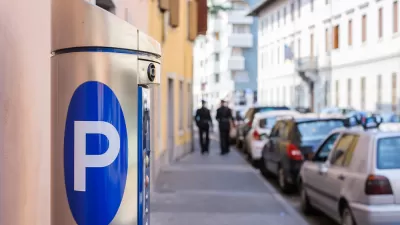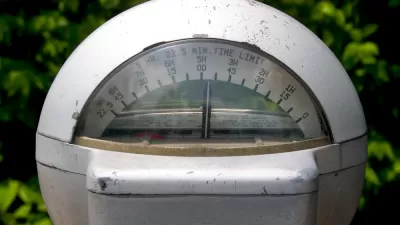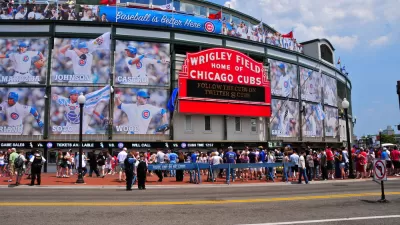The results of a parking pilot project are in.

Boston officials have analyzed the results of a yearlong pilot project to test new schemes for pricing of parking in areas around the Back and Bay and Seaport District.
"City officials announced [last week] that the pilot program, which began on Jan. 3, 2017, showed increases in available metered parking spaces in both areas, as well as decreases in double-parked vehicles and resident-only parking violations," reports Lisa Creamer.
According to Creamer, the pilot project deployed two separate models for parking prices. "On some often-congested arteries in the Back Bay, officials upped the price of metered parking by $2.50 to $3.75 per hour," explains Creamer. "In the Seaport District, the city used what's called 'dynamic pricing,' using sensors in meters to determine the cost of metered parking rates based on the availability of spaces."
The city faced criticism from Mayor Martin J. Walsh in September, when he argued that the program hadn't helped congestion as much as hoped.
Still, the results show a change in parking availability: "Boston saw an 11 percent increase in open metered spots in the Back Bay, while the Seaport saw a modest 1 percent increase in available spaces," according to the analysis released last week.
FULL STORY: Increase In Metered Parking Costs Led To More Spaces, Say Boston Officials

Americans May Be Stuck — But Why?
Americans are moving a lot less than they once did, and that is a problem. While Yoni Applebaum, in his highly-publicized article Stuck, gets the reasons badly wrong, it's still important to ask: why are we moving so much less than before?

Study: Maui’s Plan to Convert Vacation Rentals to Long-Term Housing Could Cause Nearly $1 Billion Economic Loss
The plan would reduce visitor accommodation by 25,% resulting in 1,900 jobs lost.

Placekeeping: Setting a New Precedent for City Planners
How a preservation-based approach to redevelopment and urban design can prevent displacement and honor legacy communities.

San Diego Swaps Parking Lane for Kid-Friendly Mini Park
The block-long greenway will feature interactive play equipment and landscaping.

Tracking the Invisible: Methane Leaks From LA’s Neighborhood Oil Sites
Environmental advocates are using infrared technology to monitor and document methane leaks from neighborhood oil sites, filling regulatory gaps and pushing for stronger protections to safeguard community health and the climate.

Montana Bill Promotes Parking Reform
A bill before the Montana state senate would bar cities from requiring more than one parking spot per new housing unit.
Urban Design for Planners 1: Software Tools
This six-course series explores essential urban design concepts using open source software and equips planners with the tools they need to participate fully in the urban design process.
Planning for Universal Design
Learn the tools for implementing Universal Design in planning regulations.
Caltrans
Heyer Gruel & Associates PA
Institute for Housing and Urban Development Studies (IHS)
City of Grandview
Harvard GSD Executive Education
Salt Lake City
NYU Wagner Graduate School of Public Service
City of Cambridge, Maryland





























